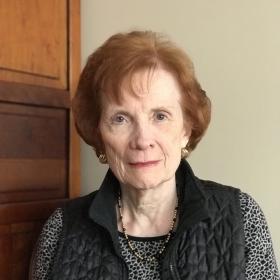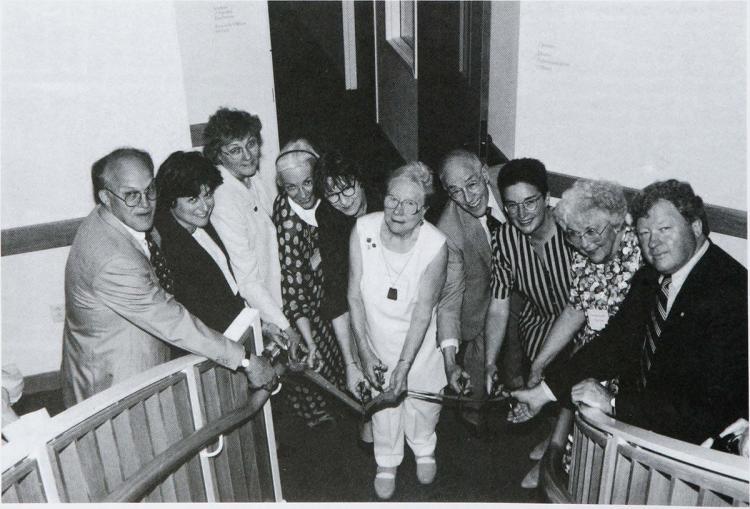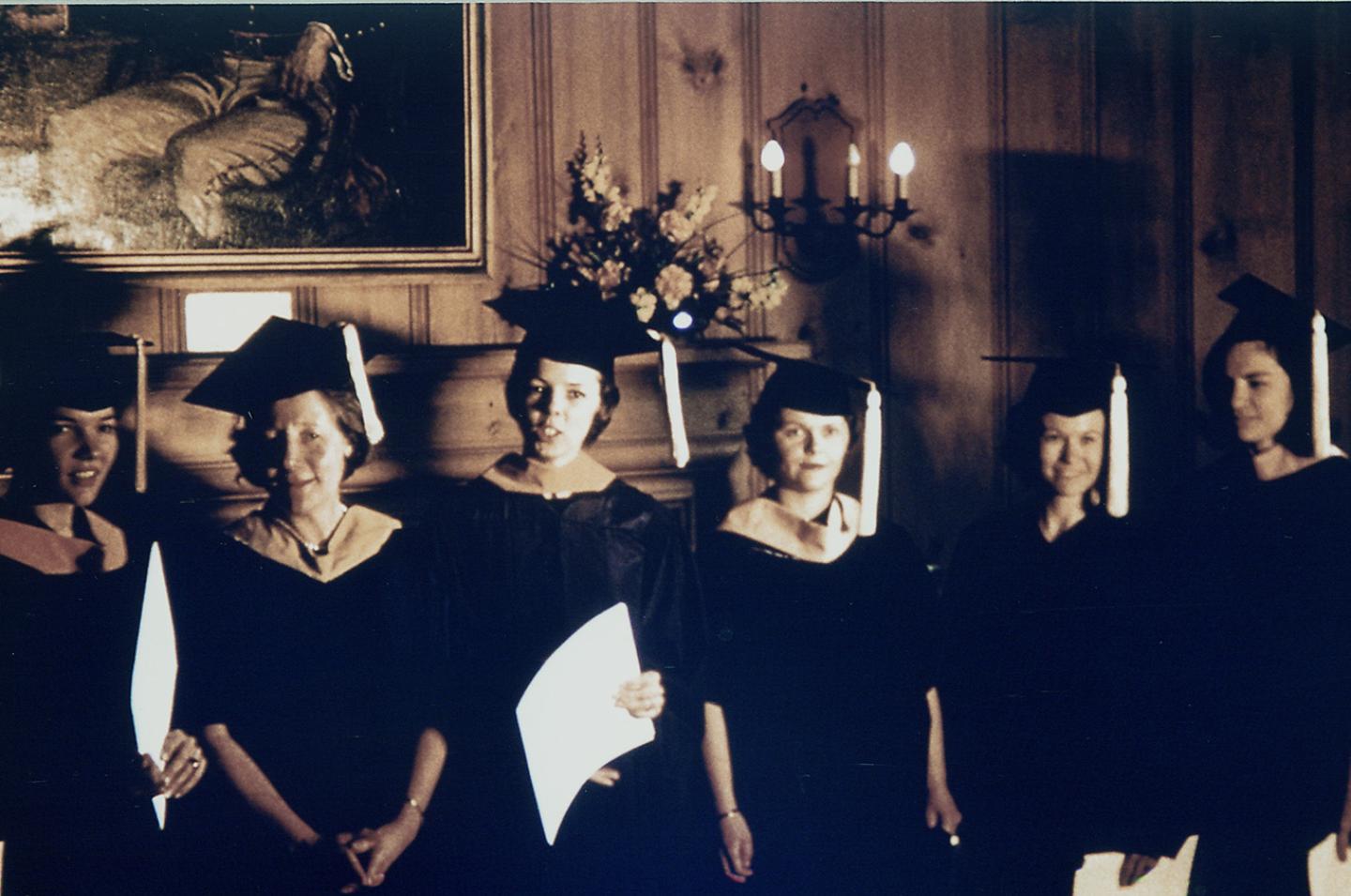



On a Sunday afternoon in 1966, Yale President Kingman Brewster ’41 hosted a gathering for the university’s newly hired faculty, which included Roberta FitzGerald ’66 MSN. She had recently graduated with a master’s degree from Yale School of Nursing and been hired as an instructor.
When they met, he asked her to think about potential new programs the nursing school could offer.
“I have no idea why he asked me,” FitzGerald says, though she theorizes that the school’s newly hired dean, Margaret Arnstein, may have mentioned to the president that she wanted to grow the school’s offerings. She already had a few ideas, and soon enough, Arnstein issued a call for potential new programs.
“I had Kingman Brewster’s words in my head, but these were my senior colleagues, many of whom had been my professors just months ago,” FitzGerald says. “Still, I figured I had to give my idea a shot. So, I pitched the idea of a combined basic and graduate nursing program for college graduates.”
Supporting Nontraditional Students
The groundbreaking Graduate Entry Prespecialty in Nursing (GEPN) Program, which allows college graduates to earn their RN and MSN degrees in three years, launched just two years later.
“Not everyone who graduates from high school knows what they want to do in life,” FitzGerald says. “As you mature in a college program, you are so much better able to decide what career is the best fit for you. I felt that our nursing school should have a place for people who graduated high school not knowing they wanted to be nurses, or people who wanted to be nurses but also wanted to get a college education.”

FitzGerald knew the limitations of pursuing nursing without a master’s degree. While working as a pediatric nurse before she came to Yale, she developed a chronic illness that would later be diagnosed as Crohn’s disease. Extreme fatigue and 105-degree fevers made long shifts at the hospital challenging.
“At that point, I did not have my master’s degree, so I was only qualified to work on the front lines doing the most physically demanding work,” FitzGerald says. “I came to Yale to earn the degree I needed to continue working in the field. So, when I had the opportunity to create a program for other aspiring nurses to achieve that higher level of education, I knew how valuable it could be.”
A Legacy of Accessibility
Nearly six decades after the GEPN program’s creation, FitzGerald has established the Roberta A. FitzGerald Scholarship Fund to provide financial aid to GEPN students entering YSN to become advanced practice nurses.
“The people with the drive to care for others aren’t necessarily the people with the greatest financial resources,” FitzGerald says. “So many nursing students graduate today with an incredible amount of debt. Since I was instrumental in the start of the program, I thought it was only fitting that I would support it into the future.”
YSN Dean Azita Emami says FitzGerald’s creativity has paved the way for nontraditional nursing students.
“Students entering our GEPN program come to us with vast experience and knowledge outside of nursing, which is so valuable in the health care field,” Emami said. “The idea proposed by Roberta FitzGerald more than 50 years ago has flourished, proved itself, and made countless nursing careers possible. She saw, even then, the importance of nurses having an advanced degree, and the value of creating a path and an invitation for students with knowledge and experience gained outside of nursing. Through GEPN, Roberta has inspired hundreds of nurses. It is a remarkable and admirable legacy whose value is increasing in step with our need for more nurses who have advanced education and a desire to lead.”
